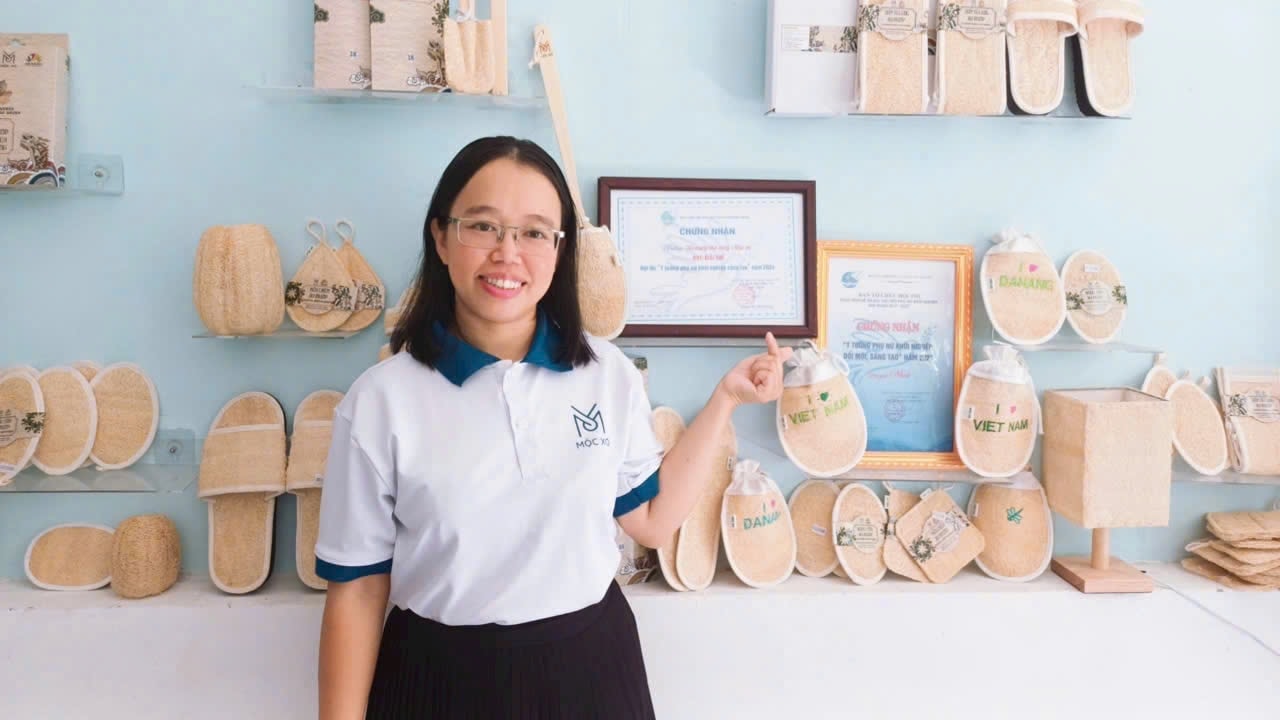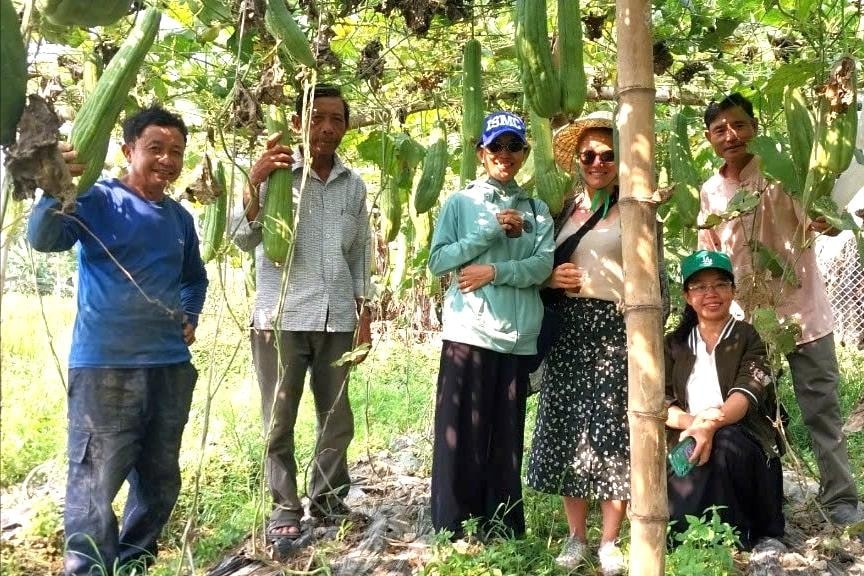DNO - In Da Nang, a new wave of entrepreneurs is redefining rural livelihoods by transforming agricultural byproducts into innovative, eco-friendly products.

Their ventures are not only profitable but also aligned with the global shift toward sustainability.
Three years ago, Vo Thi Ngoc Thu, 40, the Director of Vu Nguyen Investment and Development Co., in Da Nang discovered the untapped potential of loofah fiber.
Known for being durable, quick-drying, odor-free and gentle on the skin, the material can be crafted into household items such as sponges, bath straps, sandals, and tote bags. At the time, no factory in Da Nang specialized in loofah-based goods.
Traditionally, farmers only grew loofah for its edible fruit, while cultivating it for fiber was rare. Loofah harvested for food takes just 1 to 1.5 months from seeding to harvest, but fiber loofah requires 3 to 4 months until the skin is about 80% dry before it can be collected.
Starting with just half a hectare, Thu partnered with farmers to cultivate loofah specifically for fiber. Today, her supply network spans 18 hectares in Da Nang and other neighbouring localities, producing about 50,000 loofahs each month for her workshop.
Marketed under the brand Moc Xo, the products have earned a three-star OCOP certification and VietGAP accreditation, opening the door to export.
Now, items such as loofah back scrubbers are sold domestically and shipped to markets including the United States, Canada, Australia, South Korea and the Netherlands, at volumes of 10,000 to 15,000 pieces per month.
Her workshop employs 15 full- and part-time workers and supports dozens of farming households.

Sharing the same commitment to sustainability, IT Da Nang engineer Nguyen Quang Phu, 33, has pioneered in farming black soldier fly larvae that are highly nutritious insects widely used as feed for poultry and aquaculture.
Using a 50-square-meter facility, he converts organic waste into nutrient-rich animal feed while reducing environmental pollution.
The venture currently generates monthly income of $300 - 400 and is scalable in urban and rural spaces. Phu is now training local farmers to replicate the model.
Together, these above - mentioned stories highlight how Da Nang young innovators are breathing new life into agriculture, turning overlooked resources into sustainable businesses.